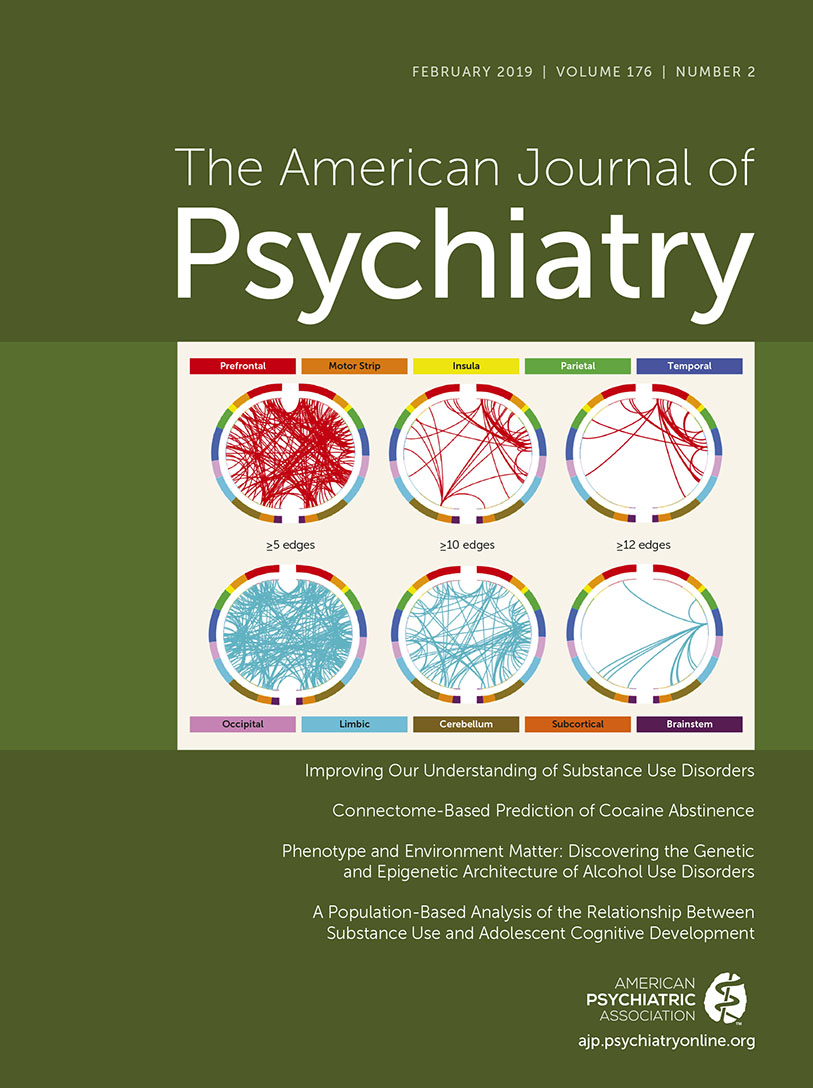Prazosin for Alcohol Use Disorder: Response to Kleinman and Ostacher
To the Editor: We thank Drs. Kleinman and Ostacher for their comments regarding our recent article reporting the results of a double-blind randomized trial comparing prazosin with placebo for individuals with an alcohol use disorder who do not have posttraumatic stress disorder.
Drs. Kleinman and Ostacher take issue with several aspects of the data analyses and presentation of the study’s results, but we believe their concerns are unfounded. First, we opted to focus our primary analyses on the period of time after the medication was titrated to what is presumed to be a therapeutic dose, and we included participants who completed the titration phase to ascertain the medication effects in this initial phase II trial of prazosin. We did, however, include information in the online supplementary material on the sensitivity analyses involving the whole sample throughout the medication phase, which, in contrast to what was stated in the letter to the editor from Drs. Kleinman and Ostacher, showed the same pattern of results as the posttitration models. We also reported details regarding additional sensitivity analyses in the online supplement, including the rigorous follow-up models using random slopes.
Second, Drs. Kleinman and Ostacher appear to confuse our dependent variable outcomes (i.e., number of heavy drinking days per week, number of drinks per week, and number of drinking days per week) with the analytic models we used and that were outlined in the “Daily interactive voice response data” subsection under the “Statistical Analysis” subheading. They incorrectly state that the condition-by-week interactions were exploratory outcomes, when in fact they refer to the a priori primary analytic models used and were patently not exploratory.
Third, concern was expressed that we did not include the a priori power analysis in the body of the article and that we indicated in ClinicalTrials.gov our target enrollment was 150. The CONSORT diagram included in the article shows that we enrolled 151 individuals in the study and that 92 met criteria for randomization. In the original grant we did estimate that, in light of our strong pilot data, 60 participants per cell would be more than sufficient to detect statistical significance with 80% power at an alpha of 0.05. Thus, it is possible we were somewhat underpowered, but nonetheless we did find a modest but clinically relevant effect of prazosin on the number of drinks per drinking day and heavy drinking.
Finally, Drs. Kleinman and Ostacher state that we did not include information about the three drinking outcomes in the abstract. Although we did not provide detailed means and standard deviations in that portion of the article, we believe we gave a fair overview of the pattern of results indicating an effect of prazosin such that it was associated with significantly greater reductions in drinks per drinking day and likelihood of heavy drinking relative to matched placebo.
We appreciate the opportunity to respond to the issues raised by Drs. Kleinman and Ostacher and hope that our clarification of those issues is of use to Journal readership.



